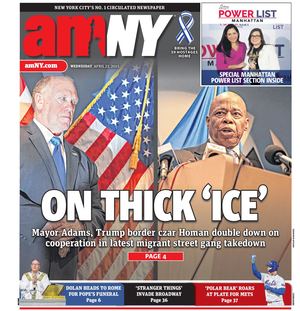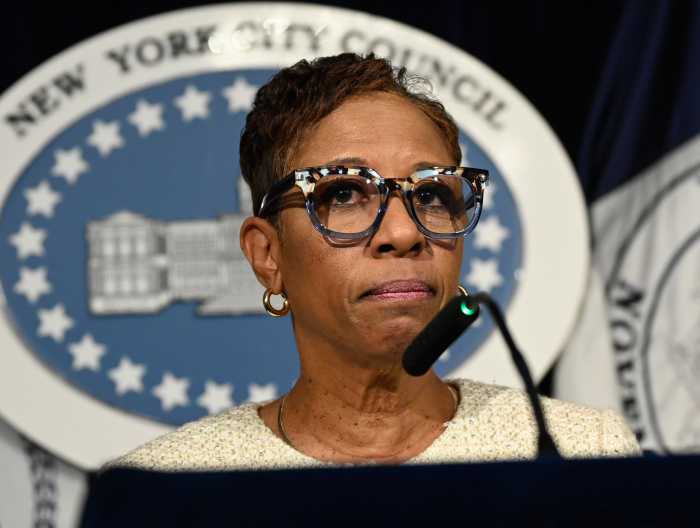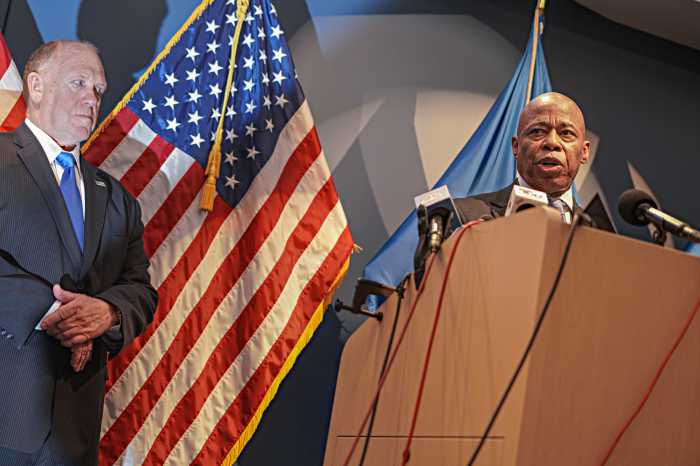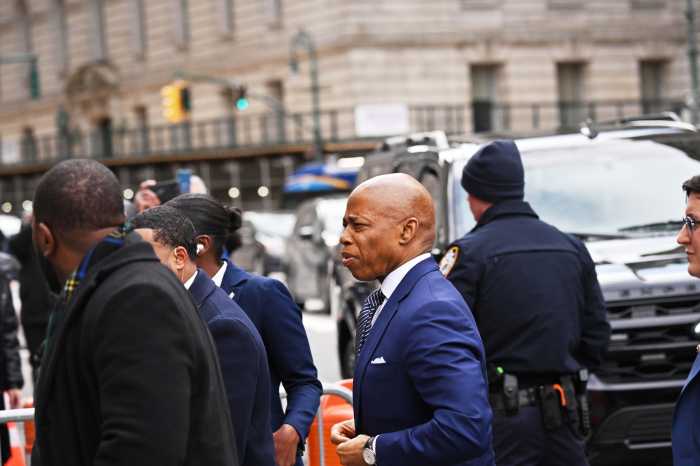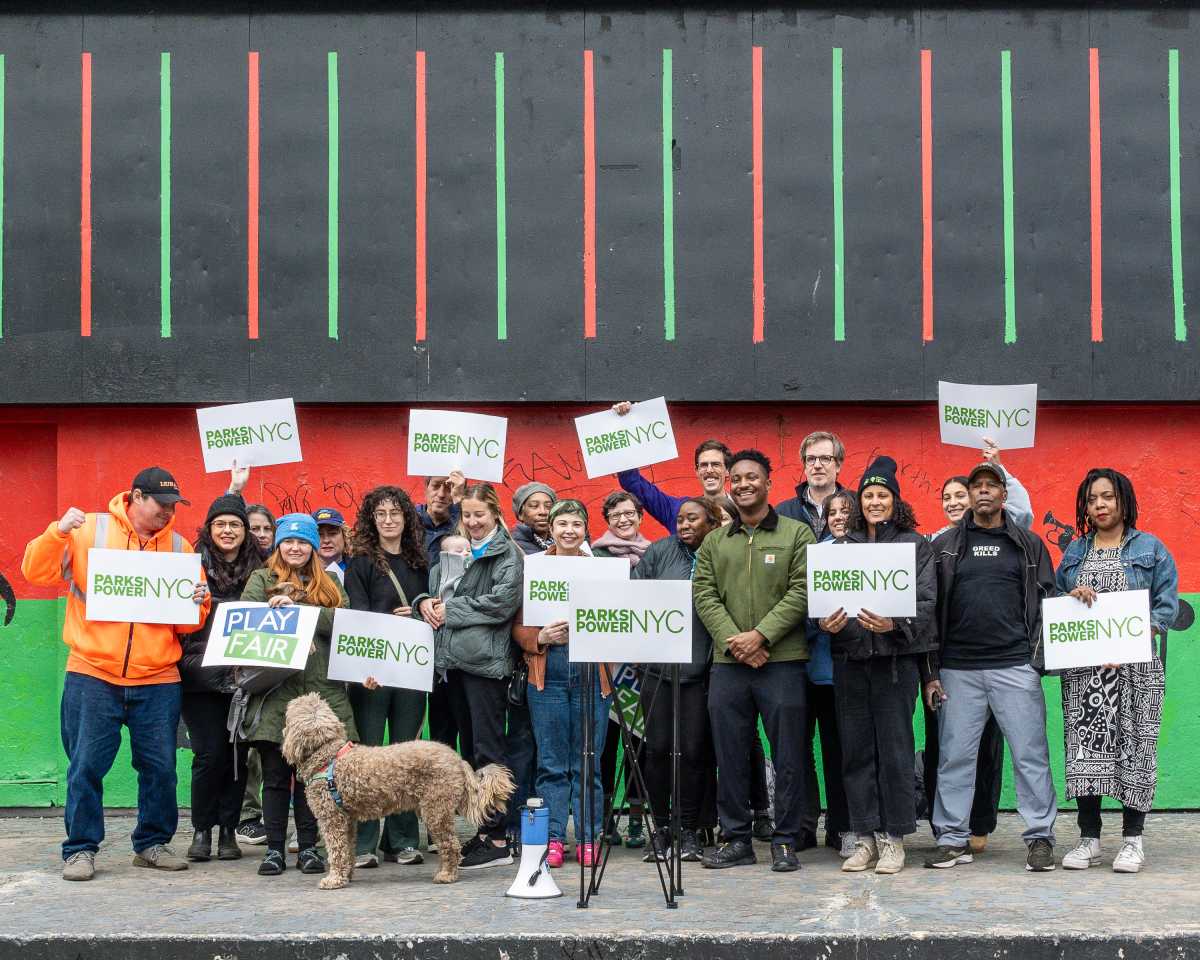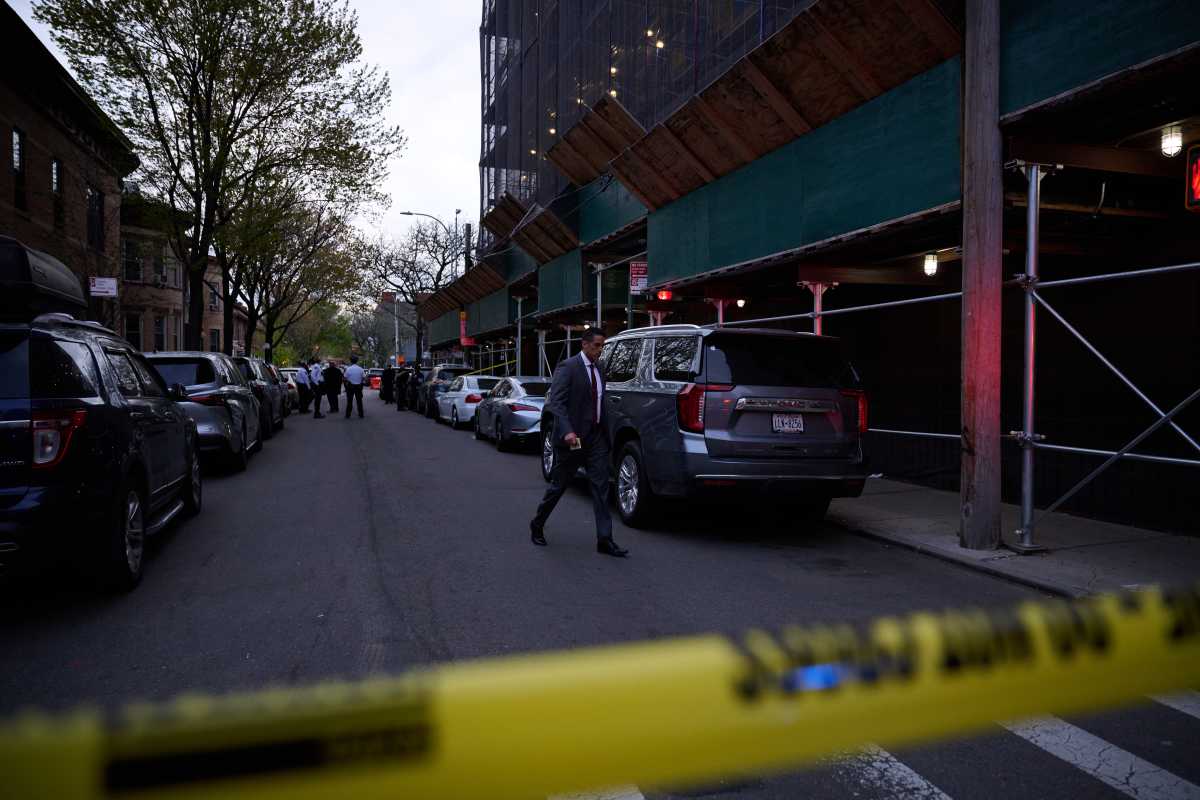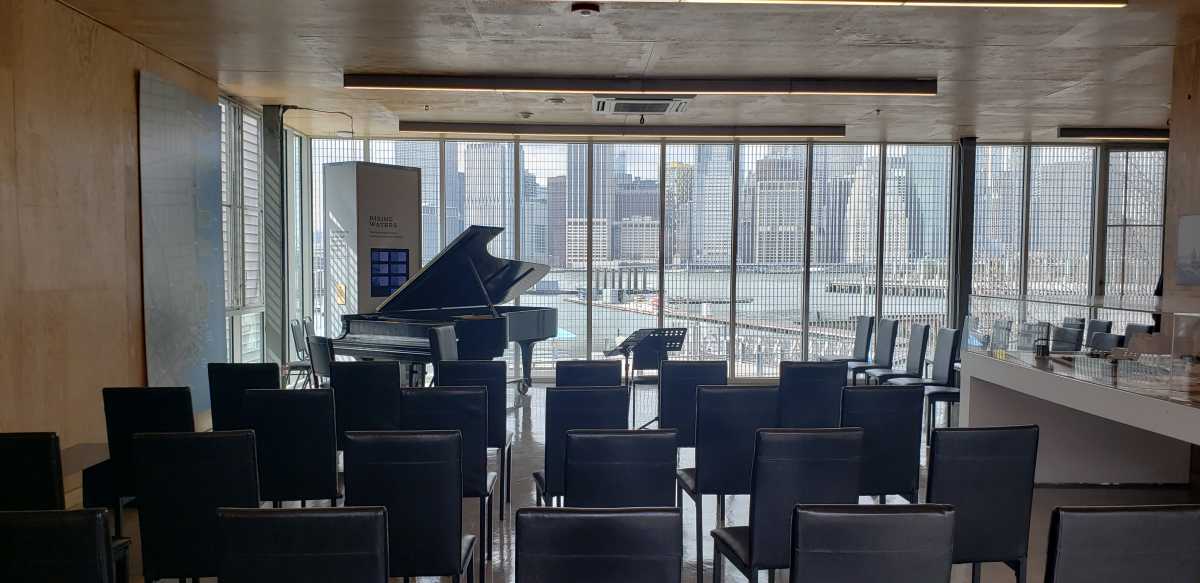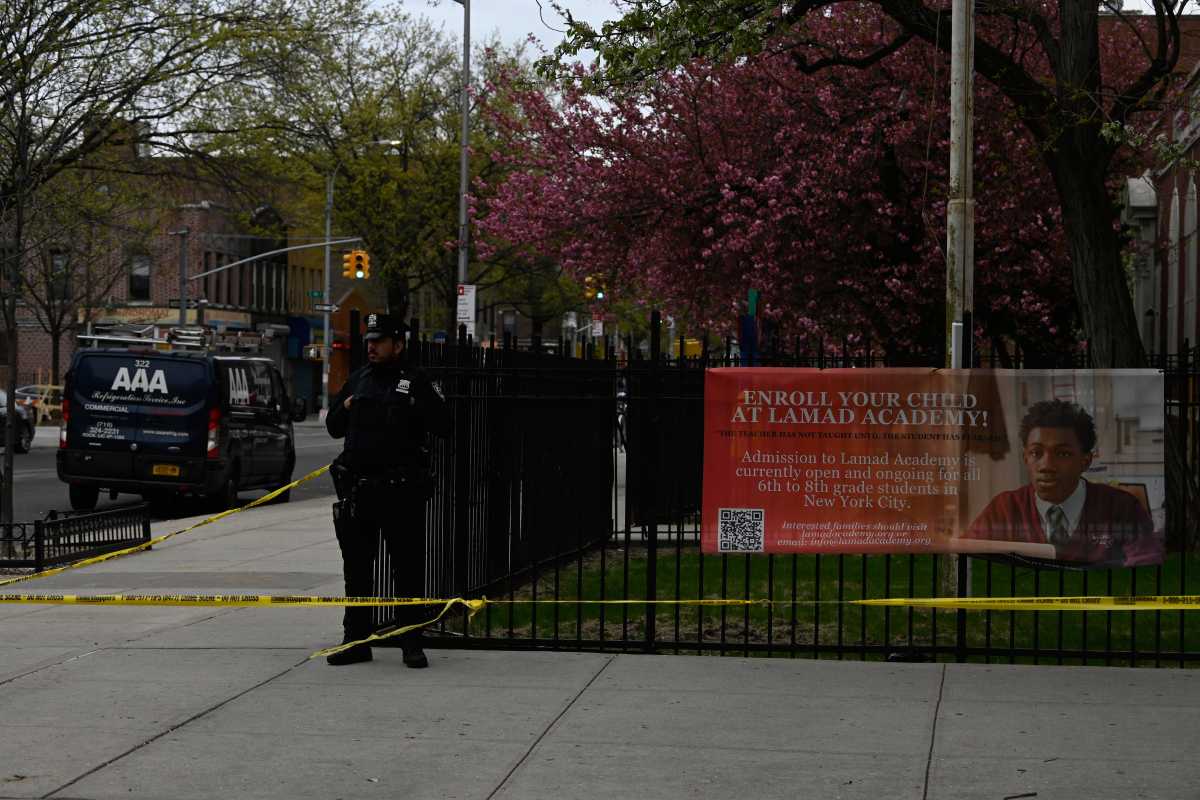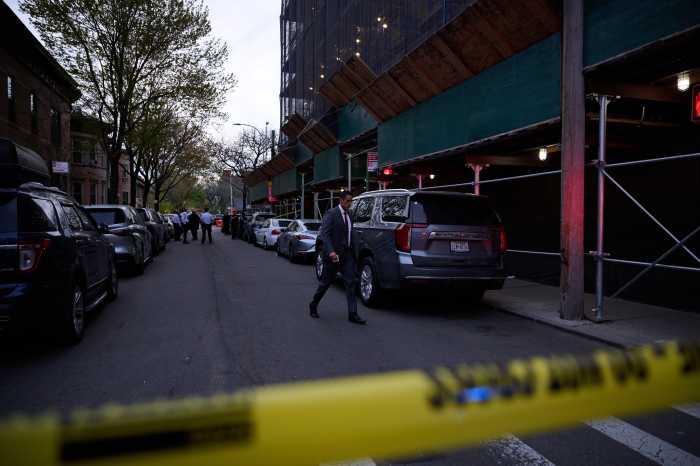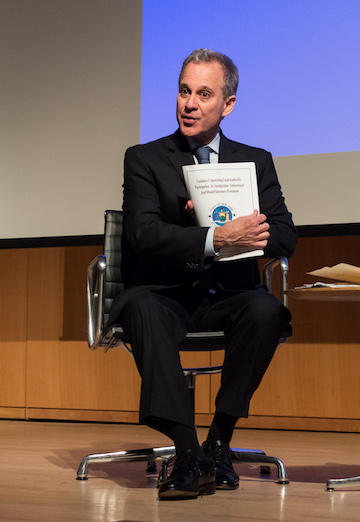
BY JACKSON CHEN | Seeking answers for many actions coming out of the new administration in Washington that they see as questionable, some 300 Manhattanites showed up last week at the CUNY Graduate Center in Midtown to hear the State Attorney General weigh in.
On May 24, East Side State Senator Liz Krueger hosted a “State of the Resistance” talk with Attorney General Eric Schneiderman, who has proven to be a staunch opponent of Trump and the initiatives he has focused on in the first few months of his presidency.
So far, Schneiderman – who prior to his election as AG in 2010 served more than a decade as an Upper West Side State Senator – and his colleagues from some other states have intervened on a wide range of issues, from opposing Trump’s travel ban on entry into the US from six majority-Muslim countries to pressing for a special counsel to take over the Justice Department’s investigation into ties between Russia and the Trump campaign and administration.
Schneiderman’s discussion at CUNY explored these national concerns while he also tailored his remarks to specific local concerns of New Yorkers, exploring topics focused on the new administration’s impact on the Empire State. In a city that is home to millions of immigrants, many of Trump’s goals – like cutting back on sanctuary city funding or emboldening immigrant officers – have New Yorkers concerned about protecting their neighbors as well as their beliefs.
“There are severe restrictions on the federal government’s ability to cut back funds for local governments,” Schneiderman said. “There’s a lot of chest-pounding and rhetoric about taking away all your money and you’re going to have to comply with this. It’s just not true.”
Schneiderman explained that state Attorneys General from around the country have enjoyed success in defending the nation’s immigration traditions and said he expects that to continue. At the same time, he acknowledged that he and his peers are not alone in creating an effective counterweight to Trump.
Schneiderman recalled Trump’s January 27 executive order that temporarily barred entry for refugees and immigrants from seven Muslim-majority nations. While he and AGs from other states worked on blocking the president’s action, thousands of lawyers and activists visited airports to see if there were stranded passengers seeking legal representation.
“That was really the beginning of what I call the legal resistance,” Schneiderman said. “There’s a sense in the legal community of Attorneys General, lawyers for local governments, lawyers for nonprofits, and a lot of the members of the private bar that this order and other things they’ve done since then are offensive in a more fundamental way than mean-spiritedness or bias. It shows a total disregard for the rule of law.”
Schneiderman and other AGs continued their intervention on February 28 by opposing Trump’s executive order that aimed to rescind or revise the Clean Water Rule, established by the US Environmental Protection Agency and the Army Corps of Engineers during the Obama administration to protect streams and wetlands from pollution.
Looking forward on issues of concern for New Yorkers, Schneiderman said one of the more pressing issues was codifying the landmark 1973 Roe v. Wade Supreme Court decision into state law. Noting what he described as a “deep strain of misogyny” in the new administration, the Attorney General said it was vital to secure reproductive health rights in New York against the risk of erosion at the federal level.
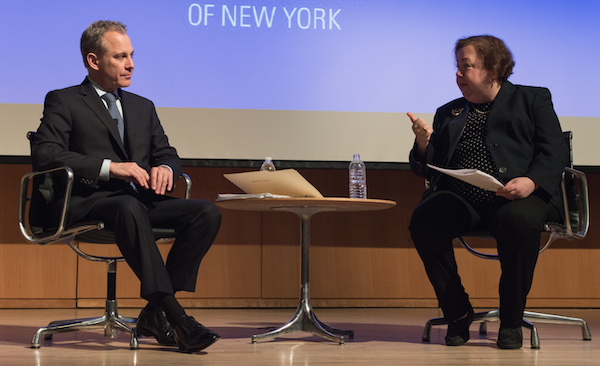
So far, the Reproductive Health Act, sponsored by Krueger, has passed the State Assembly and, in the Senate, has been referred to the Health Committee. Governor Andrew Cuomo has suggested an alternative route to protecting reproductive rights – through a state constitutional amendment, which provides greater security but is far more difficult to achieve.
Given a federal government whose policies are suddenly both at odds with New York values and unpredictably volatile, Schneiderman said that it is time to start focusing on the powers that state governments have to make policy and protect the progressive gains of recent decades.
“It’s very important that we recognize that states can fill in the gaps where federal government won’t enforce the laws,” he said. “The states are where the action is right now, and we have to take over state governments.”
The Attorney General said it was also time to start capitalizing on the fierce political determination he sees among Democrats and channel that to impact state legislative action.
Schneiderman argued that, since 2010, Republicans have secured control of state after state and have been able to maintain their status quo by passing voter suppression laws.
In New York, the AG said, introducing early voting would boost turnout dramatically. Beyond turning out for elections, he urged voters to scrutinize their elected officials by visiting their offices and speaking up – even to friendly legislators, since in that way voters’ words can then be brought to the Senate and Assembly floor.
“The tougher you are with [electeds], the tougher they’re going to be with the opposition,” Schneiderman said. “So this new fierceness that you’re seeing is not just because everyone changed their diet… They are feeling this from their constituents.”
A key problem progressives face in the New York Senate, Krueger charged, is the eight-member Independent Democratic Conference (IDC) that voted to share power with the minority Republicans, giving the GOP control of the chamber. With the recent addition of Senator Brian Benjamin — after he easily secured the vacant Senate’s 30th District seat in Upper Manhattan on May 23 — the Democrats maintain their 32-31 majority over Republicans but continue to be denied the leadership.
According to Krueger, the Democrats are unable to pass progressive legislation due to the outsized influence of the Republicans, adding that IDC members need to “act like Democrats like they were elected to be.”
Even as the largely Democratic crowd acknowledged the importance of which party controls the State Senate, they were also curious about what chance there was to shake up things at the White House. When asked as a lawyer what his view is of the chances for impeaching Trump, Schneiderman said, “Anything is possible.”
At the same time, he warned that route was not “something to be taken lightly. It’s very serious, it’s a slow process, and it’s essentially a political decision.”
Careful not to entertain the issue of impeachment too much, instead focusing on tackling substantive policy issues, Schneiderman also reminded the crowd of what removing Trump from office would mean.
“If [Trump] goes tomorrow… we are looking at President Mike Pence,” he said. “There’s no door number two that brings you back to normal.”
